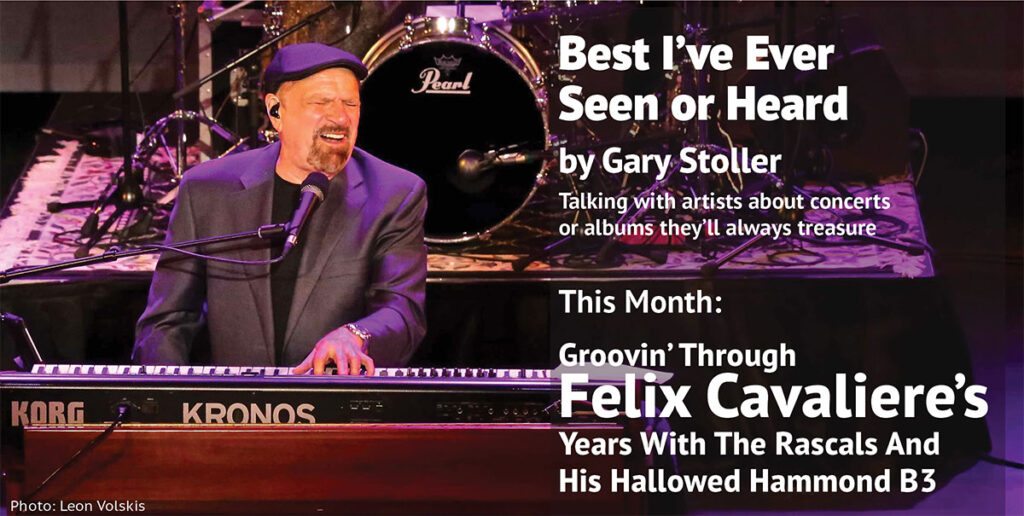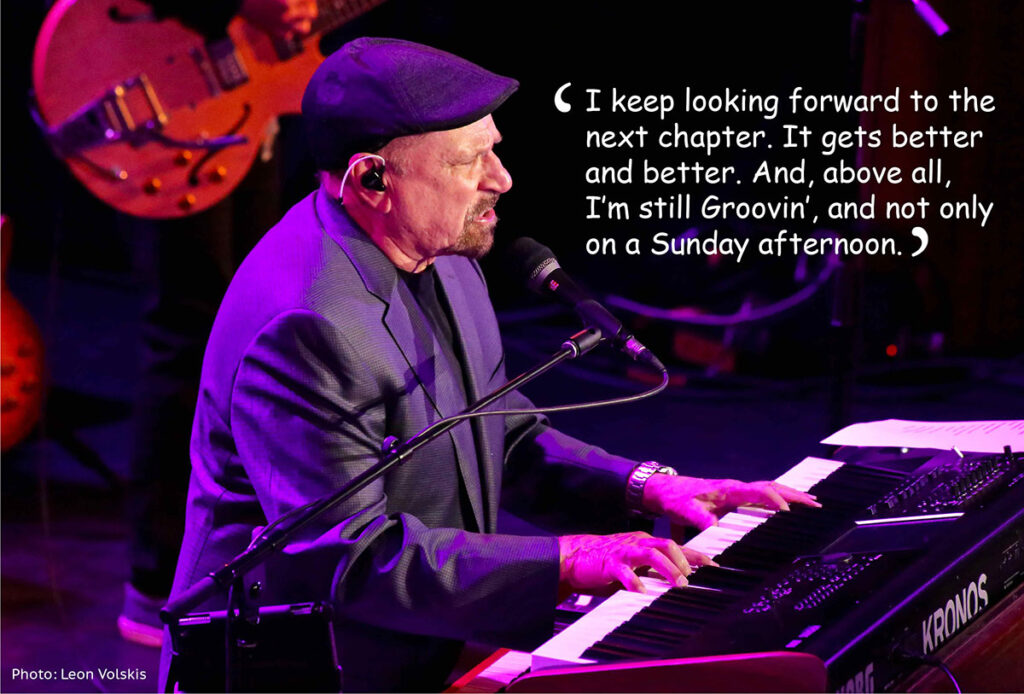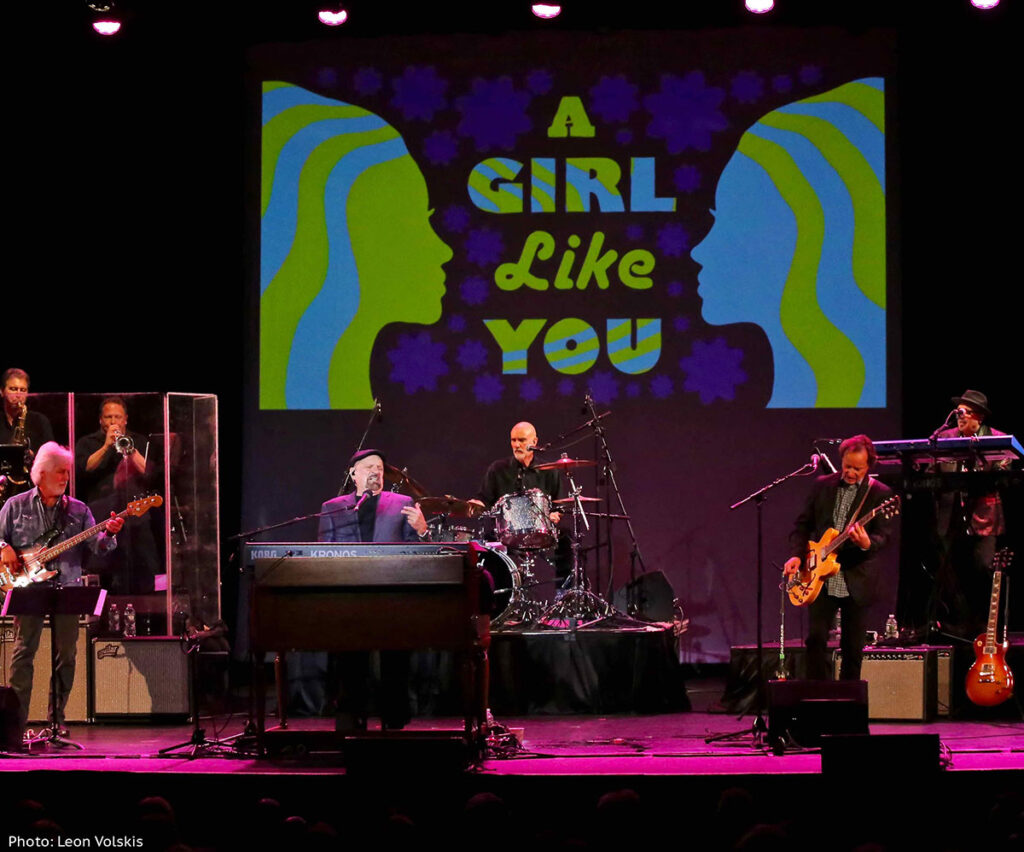
The Rascals were an innovative 1960s white-soul rock group with several enduring big hits, and singer-songwriter-organist Felix Cavaliere played a major role. The band broke up in the early 1970s, and now, 50 years later, the 77-year-old Cavaliere, who still tours and plays rousing rock and roll shows with his band, released a book about the Rascals and his life and career.
Cavaliere tells me he was driven to write the book, Felix Cavaliere Memoir of a Rascal, by press conferences the Rascals held in 2013 to promote their Broadway reunion show Once Upon a Dream. At the conferences, the four members of the Rascals had different responses to media questions.
“That spurred me to write what I remembered, so at least my recollections were documented,” says Cavaliere, who was one of the first musicians to use the Hammond B3 organ as a lead instrument. “Then, it occurred to me that the Rascals were only six years or so of my life, and perhaps I should write about the other years.”
The book expresses Cavaliere’s joy of making music with the other three Rascals — Eddie Brigati, Gene Cornish and Dino Danelli. The group’s major hits included “Groovin’,” “A Beautiful Morning,” “Good Lovin’,” “How Can I Be Sure” and “People Got to Be Free.”
Cavaliere, who grew up 10 miles northeast of Manhattan in the suburban Westchester County town of Pelham, regrets that the four members weren’t able to put aside their differences and create music together for decades — and after a short-lived 2013 reunion tour. Cornish, whose own book, Good Lovin’: My Life as a Rascal, was published in 2019, is joining Cavaliere for seven shows Nov. 11-20 in the Northeast on a tour dubbed The Rascals Time Peace Tour.
I mention to Cavaliere that there must be much frustration and sleep lost because the Rascals, who began as the Young Rascals in 1964, didn’t fulfill their potential.
“Yes, there was frustration about the lack of business acumen that our group and organization displayed,” he says. “I chose not to expand on that in the book, because I felt there was no point in crying over spilled milk. I am blessed with a great family and a continuing career, so the belief system ‘I Am Thine, All Is Thine, Thy Divine Will Be Done,’ which my wonderful guru instilled in me, has prevailed.”
The reunion shows on Broadway and other venues were the brainchild of producer/director Steven Van Zandt of Bruce Springsteen’s E Street Band. Van Zandt was a big Rascals fan and scripted the shows with historic band videos between the Rascals’ live song performances.
In his book, Cavaliere says the reunion was enjoyable but — because the shows were scripted — lacked the onstage spontaneity of a Rascals show. 
“Songs had to be played exactly the same way every night, with no deviation,” Cavaliere writes in his book. “That was a necessity because they had to synch up with the video effects that were preprogrammed to come on at a precise time. For a creative person, that’s really like being put in a box. For me, it was frustrating because I like to improvise and experiment, and that just couldn’t happen.”
I ask Cavaliere how the music played by the Rascals at the reunion shows differed from the band’s 1960s live shows.
“Freedom of movement or lack of,” he responds. “The Broadway show had to be coordinated with video and was structured accordingly. That was the most difficult aspect for me. I enjoy freedom of interpretation and spontaneity.”
The Rascals were inducted into the Rock and Roll Hall of Fame in 1997, and Cavaliere and Brigati were inducted into the Songwriters Hall of Fame in 2009.
So, I ask Cavaliere who he regards as the greatest songwriters of our time.
“Bob Dylan stands out and Paul McCartney, Elton John and Bernie Taupin,” he responds. “Past writers Cole Porter, Hal David and Burt Bacharach were tremendous influences. Sammy Kahn, Johnny Mercer, Doc Pomus, Leiber and Stoller, Holland-Dozier-Holland, Billy Joel, Thom Bell, Gamble and Huff — so many legends whose music I played over the years. Giants all.”
Cavaliere’s book discusses his interactions with the Beatles, Billy Joel and others. I ask him if he met Dylan.
“I met Bob Dylan many years ago when he came to see us at a New York club,” Cavaliere says. “We played ‘Like A Rolling Stone,’ and he seemed to like our version. He was a tremendous influence because of the creativity and enormous diversity of his lyrics. I also worked with the Byrds many times and remember fondly time spent with David Crosby and Roger McGuinn. Those early years were so exciting and innocent.”

What were the best concerts Cavaliere attended as a spectator?
“I prefer music to light shows, so I must go with the more intimate settings,” he answers. “Jimi Hendrix, Prince, Michael Jackson, Toto, Little Feat. I can always remember the amazing theater shows that Alan Freed and Murray the K had with many artists such as Chuck Berry, Little Richard, Sam and Dave and Bo Diddley.”
It’s important not to miss an opportunity to pick the brain of a member of the Songwriters Hall of Fame, so I ask Cavaliere to name the three best albums he has ever heard.
“My best albums are ‘Weather Report,’ played by virtuoso musicians; the first ‘Elvis Presley,’ which showed unique talent and songs; Phil Spector’s ‘A Christmas Gift for You,’ which had production magic, and Motown and Atlantic compilations, which had excellent vocalists.”
Cavaliere, who has released several solo albums and two duo albums with legendary guitarist Steve Cropper, completed an album, Then and Now during the pandemic.
“It’s a compilation of old tunes that influenced me and new songs reflecting that,” he says.
I ask him about future plans and why he scheduled a mini-tour with the 78-year-old Cornish, who has recovered after a heart attack caused him to collapse during a concert with Cavaliere in Montana in 2018?
“I have been trying for a while to do a fan appreciation tour and get Gene back on stage since his illness,” Cavaliere says. “I want to continue to play shows as long as I am able and the audiences want to hear the music.”
Maybe the best conclusion, though, can be found in the final words of Cavaliere’s book.
“Happily, I have continued to work and play my music for almost 60 years!” he writes. “I keep looking forward to the next chapter. It gets better and better. And, above all, I’m still Groovin’, and not only on a Sunday afternoon.”
